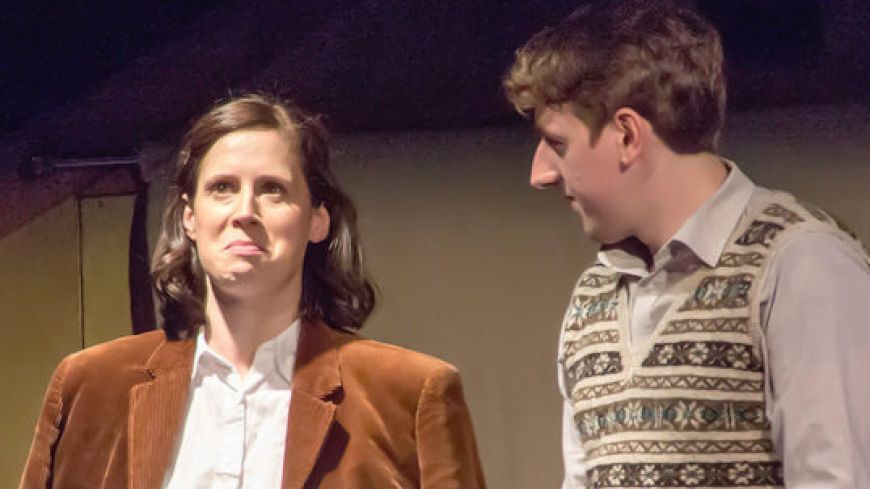
The Diary of Anne Frank by Frances Goodrich & Albert Hackett, adapted by Wendy Kesselman in 1997, is a pragmatic compression of the lives of eight people hiding from the Nazis in a concealed storage attic through the eyes of adolescence.
But rather than this being an insight into a depraved moment in history, its message of human compassion is even more relevant for today, with glimpses of similar situations in 2017 a shocking reality.
Kesselman’s script aims to honour Anne by allowing the fullness of her youthful opinions from her unedited diary pages onstage – her complicated relationship with her mother and curiosity at her budding sexuality – to ensure the dramatisation isn’t a wash of sentimentally.
Edinburgh People’s Theatre have done an excellent job of bringing the challenging story to life, accompanied by an exhibition staged by The Anne Frank Trust UK. Nothing momentously dramatic happens, apart from the inevitable outcome we all know. It is a story of fear, boredom, bickering, dreams, fear, hunger, anger and joy, with each character portrayed as a real person rather than a caricature.
Director Niloo-Far Khan chose to intersperse scenes with black and white film footage of Carol Bryce’s Anne Frank, which unfortunately adds a barrier, removing you from the effervescent, colourful characterisation in front of us, which would have served better as audio over mundane activity in the annex as the teenager’s inner monologue or direct addresses to the audiences.
Bryce’s performance is crucial, and she nails the frustrations, confusions and hormones of a girl who is all too aware of their bleak situation but retains hope and faith in humanity. Alix Spinks as restrained sister Margot is quietly enigmatic, subtlety showing some physical and mental deterioration as the play progresses where most of the others fall flat, highlighted in a touching moment when she breaks down over dinner.
Equally impressive is Pat Hymers in the role of Otto Frank, Anne’s father who was the sole survivor after capture who begins and ends the play. His closing monologue is judged perfectly, with the weight of the injustice at the heart of the piece delivered admirably, especially as it follows the weakest moment of the piece, the arrival of the Nazis, where the menace and threat in the context of the people they are destroying is not wholly grasped and the overall pacing throughout the show could be more cohesive.
However, these are gripes of little importance in the light of what has gone before and, as mentioned above, in our current climate of bigotry, fascism and deplorable human actions – works like this are utterly necessary.
Tonight (Fri 2 June) at 7.30pm and Matinee, Sat 3 June at 2.30pm at the Church Hill Theatre

